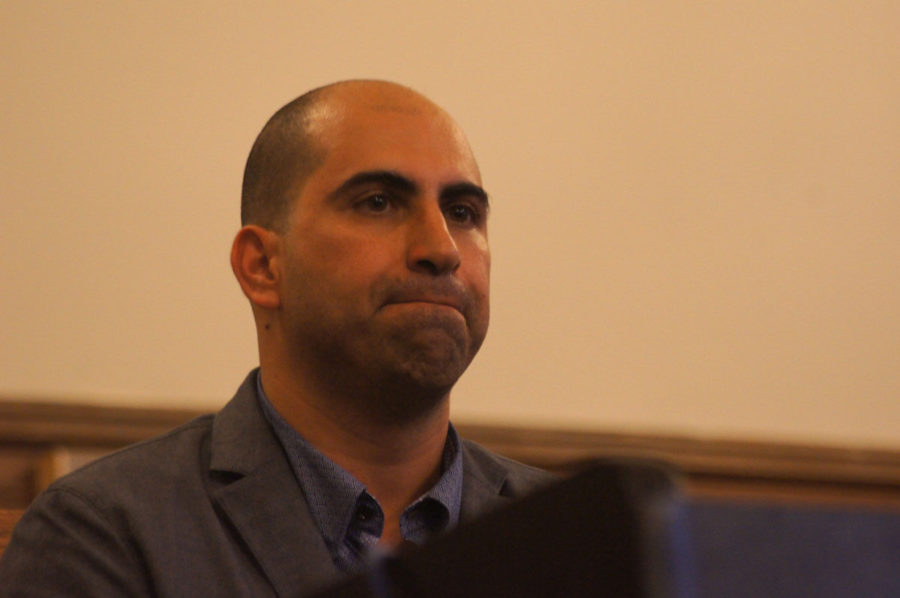Salaita files lawsuit against Board of Trustees, University administration, donors
January 29, 2015
Updated at 12:40 p.m. Friday, Jan. 30
Steven Salaita filed a federal lawsuit against the University of Illinois Thursday, claiming his constitutional rights were violated after his employment offer was denied.
The lawsuit, filed in the federal court of the Northern District of Illinois, is against the Board of Trustees, Chancellor Phyllis Wise, President Robert Easter, Vice President for Academic Affairs Christophe Pierre and unnamed donors, who Salaita believes pressured trustees to reject him.
The complaint seeks monetary relief “for violations of his constitutional rights, including free speech and due process, and for breach of contract, promissory estoppel, tortious interference with contractual and business relations, intentional infliction of emotional distress and spoliation.”
“As a private citizen, Dr. Salaita has the constitutional right to make any public statement he chooses,” the University said in a statement. “Dr. Salaita, however, does not have a constitutional right to a faculty position at the University of Illinois.”
Get The Daily Illini in your inbox!
Salaita is represented by the Center for Constitutional Rights and Loevy & Loevy, a Chicago law firm.
Anand Swaminathan, Salaita’s attorney from Loevy & Loevy, said the University has reached out in efforts to reach a settlement – as stated in a press release from the University – however, only in an effort to “buy him off,” Swaminathan said.
“Here’s the reality: what they don’t acknowledge is that the impact of their actions have cost professor Salaita a faculty position, a lifetime tenured position,” Swaminathan said. “They don’t acknowledge the fact that by voiding it, just by making the damage already stated about Professor Salaita, by questioning his scholarship and his teaching ability, they’ve made it virtually impossible for him to get another job.”
Salaita was offered employment to the American Indian Studies program in October 2013. However, after he posted several tweets regarding bombing in Gaza in July 2014, Wise informed Salaita that his appointment was unlikely to be approved by the Board of Trustees.
On Sept. 11, trustees rejected his appointment with an 8-1 vote; however, the lawsuit asks that the University completes the employment process they began.
“As Dr. Salaita admits in the complaint he filed today, the offer he received in October 2013 from the American Indian Studies Program was at all times subject to the ultimate approval of the Board of Trustees,” the University said in a statement. “This is consistent with the Statutes of the University of Illinois and the past precedent of the University.”
The University’s Committee on Academic Freedom and Tenure released a report in late December stating Salaita’s employment should be reconsidered by the Board.
However, on Jan. 15, trustees reaffirmed their decision to reject Salaita’s appointment and said his case would not be reconsidered.
“At the end of the day, the University’s refusal to follow the recommendations of the Committee on Academic Freedom, and otherwise refuse to complete Professor Salaita’s appointment, means that we had to file this lawsuit,” Swaminathan said.
The committee’s report agreed with the University’s stance that donors did not influence the decision, according to the University’s statement.
Swaminathan said this is a misconception.
“What the Committee on Academic Freedom and Tenure saw was that they had not received any evidence of (donor pressure), and that of course was true because they didn’t receive any evidence from the University. All they had was the same, highly selective, highly redacted, set of records the University chose to release,” Swaminathan said.
David O’Brien, chair of the Committee on Academic Freedom and Tenure, declined to comment.
Megan and Abigale can be reached at [email protected].







